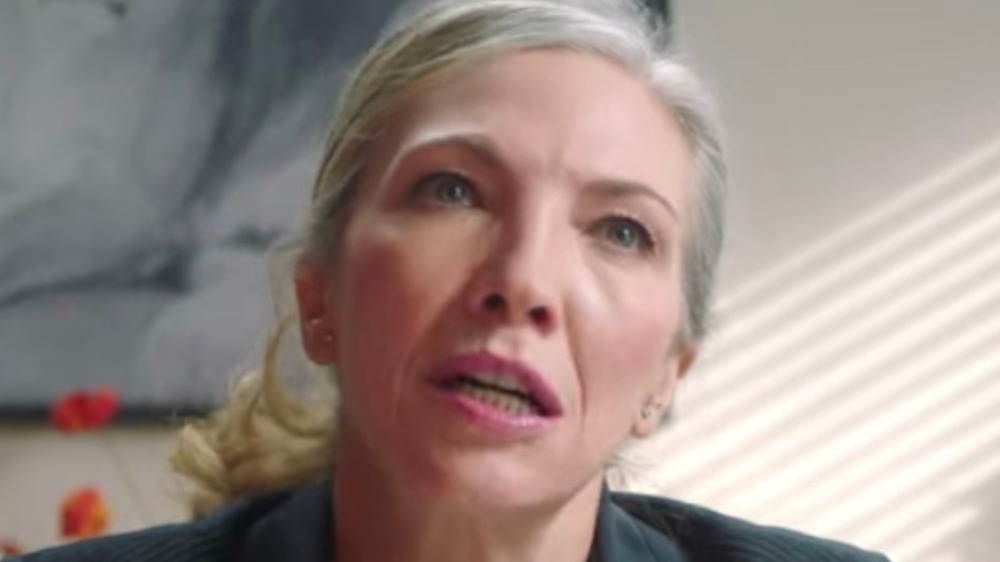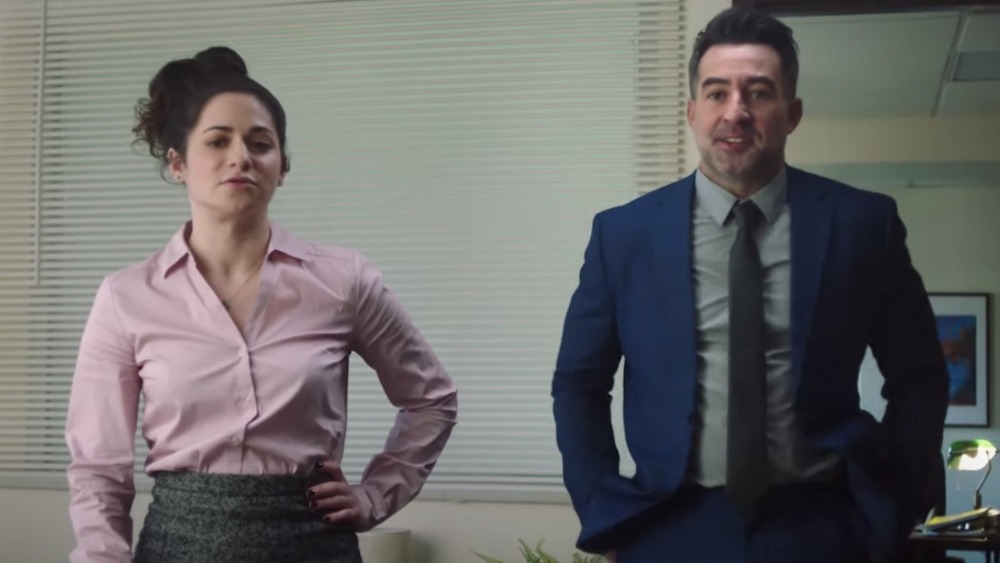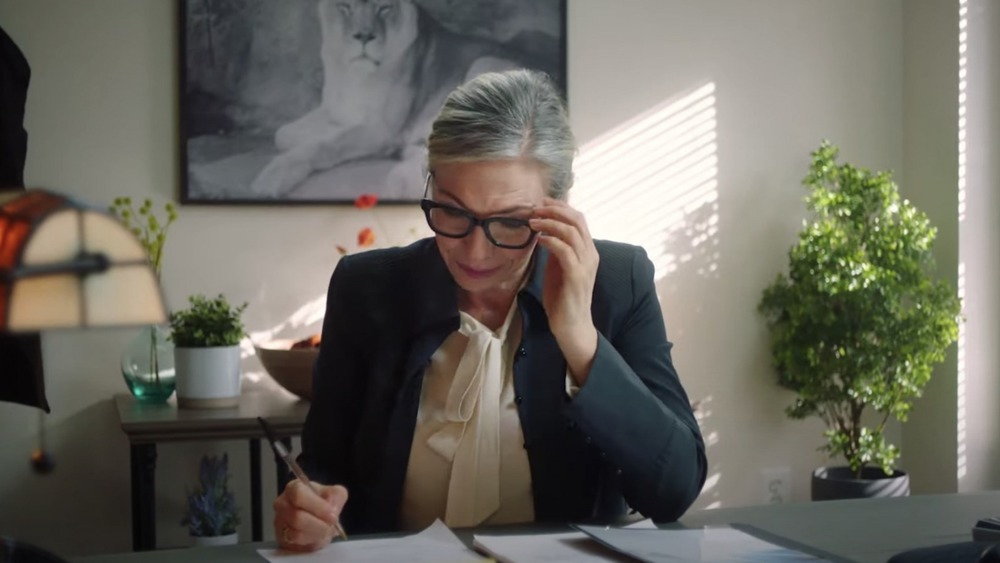This May Have Been The Super Bowl's Most Disturbing Ad
The Super Bowl is the most widely watched televised event in the United States, and each year, companies attempt to capitalize on viewership by snagging ad space during the game. These commercials often draw on big-name talent and cost millions to produce. We're talking about roughly $6 million for 30 seconds of publicity, per USA Today. It's pricy, but considering watching the commercials has become as much an American pastime as watching the game or the halftime show., many companies obviously think its worth every penny to advertise during the NFL championship.
Super Bowl LV played out a little differently than others, though. The game itself was different because regulations regarding the COVID-19 pandemic made it impossible to safely fill a stadium to capacity. Instead, event producers came up with the idea to allow fans into the stadium in a socially-distanced manner, but to make the place look packed, they added cardboard cutouts of people to fill the seats between the real humans in attendance.
Stress over COVID-19 regulations spread to this year's commercials as well. Football fans suspected that the highly anticipated ads might not live up to years past, considering the coronavirus made filming more difficult, but apparently, we didn't need to worry. The 2021 Super Bowl ads were just as flashy as years past. Fan favorites included superstar rapper Drake appearing in a State Farm commercial, and Seinfield star Jason Alexander as the new face of Tide, but just like every year, there was that one commercial that stood out above all the others as particularly distasteful. This time around, that was the Cure Auto Insurance ad. Read on to find out why.
Fan's did not think this insurance ad was funny
The Super Bowl ad that definitely took home the most distasteful trophy in 2021 turned out to be a commercial for Cure Auto Insurance. The commercial premiered in one of the most coveted time slots — just minutes before the halftime show.
The ad opens with a woman sitting in her office doing some paperwork. She's interrupted when her coworker bursts into her office to complain. That coworker — a young, disheveled woman — says angrily, "Ms. Davis, Tommy just brought me into his office to whip out his opinion." Tommy then rushes into the office and corrects her. "I didn't just whip it out. She was into it," he protests, adding. "Plus, I have a pretty big opinion."
Ms. Davis tells Tommy that not everyone in the office wants his opinion. To which Tommy replies, "Okay, well, how about last week at happy hour, when you begged me for my opinion?"
"I had a pitcher of margaritas," Ms. Davis says, "I would have taken Doug's opinion." She then points to a bald man who says hopefully, "You would?" Ms. Davis responds, "No!"
The commercial ends with no resolution to this implied sexual harassment. Instead, the voice of a narrator claims, "We can't protect your opinion, but we can protect your car."
Super Bowl audiences were none too pleased with the ad. Let's break down their thoughts and the company's response.
Cure Auto Insurance defended its Super Bowl ad
You better believe that after the Care Auto Insurance Super Bowl commercial aired, people had some things to say — and many of those things were not favorable.
"Wow. Okay. Cure Auto Insurance with the fail ad of the decade," tweeted one viewer. "What is happening????"
"Nothing goes over as well in 2021 as some fresh workplace sexual harassment material," wrote another. Others questioned how such a tone-deaf commercial made it into the coveted Super Bowl slot, or as one viewer put it: "The thing that really infuriates me, as someone who has worked on TV ads in a previous life, there were quite a few people who signed off on this trash — from the company and their agency."
Who exactly is this company anyway? Cure Auto Insurance is a regional company based in Princeton, New Jersey. The business certainly didn't seem to detect any issues with its ad, considering it touted the commercial on its Twitter page just hours before it aired on national television.
Contrary to what the ad might suggest, a spokesperson for Cure Auto Insurance asserted that the company is driven by women. According to The New York Post, "a rep for Cure said the company in no way meant to 'trivialize the #MeToo movement,' and stressed that the company has an 80% female staff — and a female minority founder and CEO in Lena Chang." The spokesperson reportedly asserted that the commercial was designed as a commentary on today's political climate.



